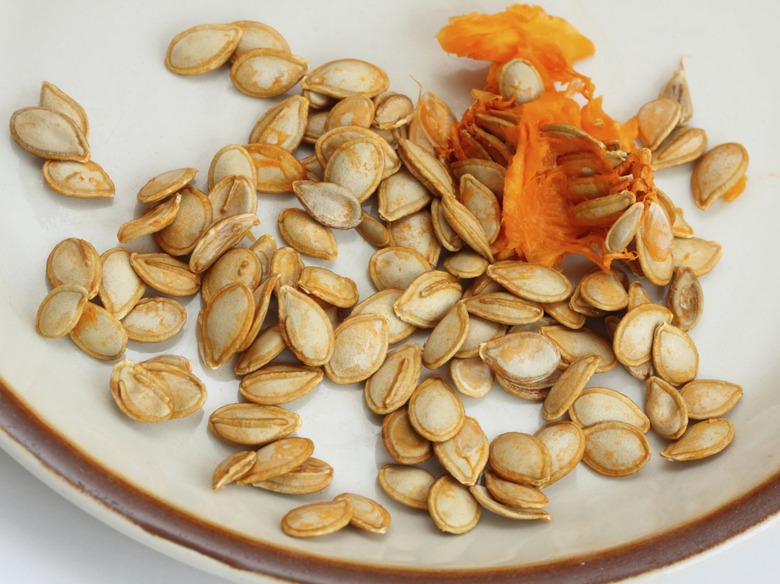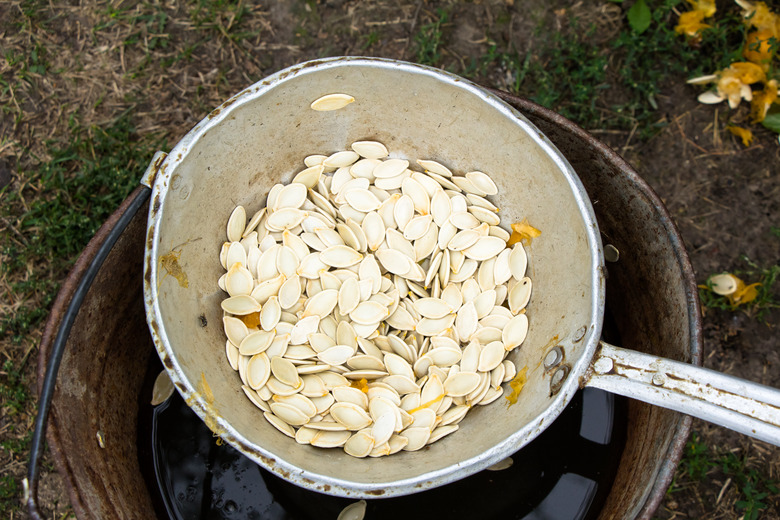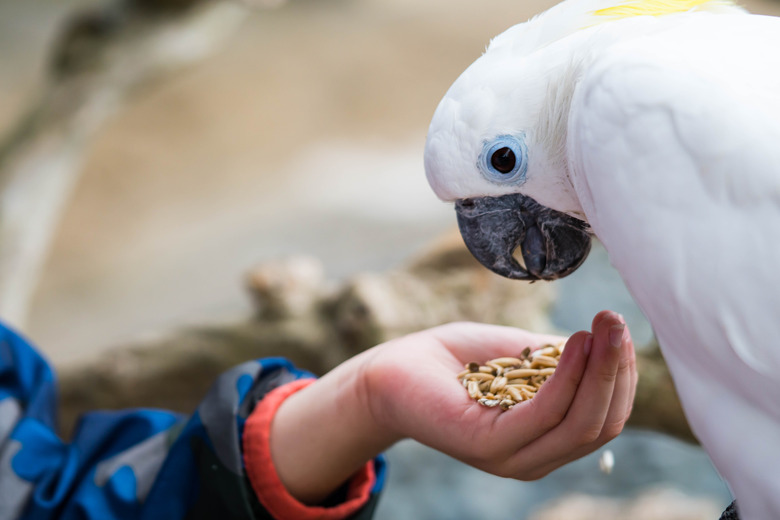Can Birds Eat Pumpkin Seeds?
Pumpkin seeds — and the flesh of the fruit from which they come — are perfectly safe treats for birds. Most seed-eating birds seem to enjoy the nutritious seeds. Roasting pumpkin seeds for birds is an easy way to add additional vitamins to a bird's diet and use up pumpkin 'guts.' Even so, consult your veterinarian before making substantial changes to your pet's diet.
Pumpkin seeds for birds
Pumpkin seeds for birds
Raw pumpkin provides an excellent source of vitamin A and a minor source of vitamin C, making it a wholesome — if low calorie — addition to your birds' diet. The seeds pack a more significant caloric punch, because 100 grams (3.5 ounces) of kernels contains about 5 milligrams (.00017 ounces) of protein and 21 grams (.75 ounces) of fat, yielding 127 calories in the same volume. Pumpkin seeds also contain important nutrients and minerals, including iron, magnesium, phosphorus, and manganese.
You can also add roasted pumpkin seeds to birdfeeders. Roast the pumpkin seeds the same way you would for people, but don't add salt. Cool the roasted seeds before adding to bird feeders.
Preparing pumpkin seeds for birds
Preparing pumpkin seeds for birds
You should prepare pumpkin seeds before offering them to your birds. Begin by hollowing out the pumpkin — or leftover Jack-o'lantern — and scooping out the seeds and stringy tissue connected to them. Separate the seeds and place them on a flat surface, in a dry, undisturbed location until they dry.
Or, if you're pressed for time, place the seeds on a baking sheet and insert them in an oven set to about 200 degrees Fahrenheit to accelerate the drying process. Be sure to use a baking sheet that does not have a non-stick coating, because coatings such as Teflon release fumes that are toxic to birds. Lining the non-stick baking sheet with parchment paper makes it easier to clean.
Commercial pumpkin seeds
Commercial pumpkin seeds
Because they are popular among humans, many grocery stores carry pumpkin seeds. However, it is important to purchase unprocessed seeds, which do not have any added salt, seasonings, or other additives. Additionally, many pet and wild-bird stores sell pumpkin seeds or carry seed mixes that contain pumpkin seeds. Both sources are ideal, because they are usually ready to use straight from the bag and do not require any further preparation.
Pumpkin seeds in birdfeeders
Pumpkin seeds in birdfeeders
Wild birds like pumpkin seeds too. Large seed-eating birds, such as northern cardinals (Cardinalis cardinalis), blue jays (Cyanocitta cristata) and rose-breasted grosbeaks (Pheucticus ludovicianus) relish pumpkin seeds. Smaller species might have trouble handling the large seeds, but you can remove the husks yourself to cater to tiny fliers. Prepare or purchase pumpkin seeds for wild birds with the same level of care as you would your beloved pets.
One way to reuse your entire carved pumpkin is to cut the top half off, then use the bottom half as a feeder. Fill it with wild bird seed, or unsalted, roasted pumpkin seeds. Note, however, that in addition to the birds, squirrels, chipmunks, and other rodents will dine on the delicious seeds and pumpkin if they are accessible, which may or may not be desirable.


